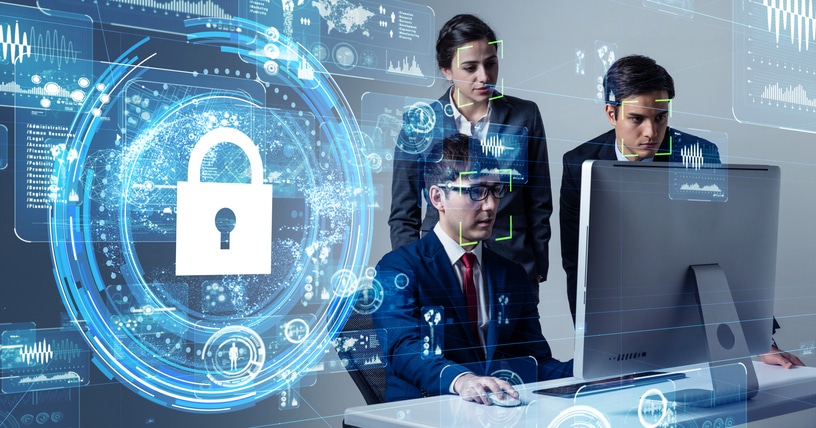Biometrics: You Are Your Password
How many times do you need your password reset because you forgot it? Do you use the same password for everything, including accessing online banking? Your work computer? Your social media?
This is an ongoing problem for users, which comes down to the nature of password security. The more complex and secure a password is, the harder it is to remember. The simpler and more memorable a password is, the less secure it becomes.
But what if you didn’t need a password at all?

Biometrics In Modern Cybersecurity
Biometrics is a term that refers to measuring unique individual characteristics such as the retina, the iris, fingerprints, or even the face. But, today, the term is generally used by most people to describe a method for securing computers and stored data requiring a user to undergo a scan of the body part used for recognition. While many systems use a fingerprint or retinal scan as a user password, systems that are serious about security often use a password and a biometric scan before unlocking the computer or device.
We are currently using some of these controls in our lives now- fingerprint scanners on smartphones and computers, for instance. This will continue to be developed and improve security in our lives dramatically.
Biometrics’ Role In Verification
Verification of you by your computer system comes in a few ways:
- Something you know, such as a password or PIN (personal identifying number);
- Something you carry, such as a flash drive or a proximity card; or
- The use of biometrics to authenticate you as an authorized user.
It’s commonly accepted that conventional authentication protocols and password protection are too weak, with today’s hackers easily using sophisticated tools that can hack passwords and get into your system and the data stored on it.
The solution to security on your entire computer system or on your smartphone is biometric authentication. Today, biometrics are already being used, and the future seems to favor their increased use as more desktop PCs, laptops, tablets, and phones will have them as standard security measures.
Biometrics’ Role In Verification
The technology has evolved to become a more integral way to prove our identities and it won’t be too long until biometrics plays a larger role in verifying our identities for patient identification in healthcare, time and attendance in the workforce, and access to banking services. Which parts of our life and business can be changed the most by biometrics?
Here are some examples:
- Security: Most people are concerned about the security protection of using passwords. It is almost certain that within the next few years, biometrics will be a standard feature in every phone with fingerprint scanners built into every screen, facial recognition through the camera function, and voice recognition through the microphone.
- Payments: Biometrics are already in play with technology that uses unique traits mentioned before in fingerprint and facial recognition, and some have already begun to develop retinal and vein recognition. Companies like Apple and PayPal have already begun to develop biometric-based payment solutions – imagine not having to carry cash, checks, and credit or debit cards.
- Data Access: PCs are full of data or linked to servers that are the heart of a business. We use passwords to access this data, which isn’t secure on its own. Users often have the same or similar password for their work devices as their home devices, social media, and bank accounts. Microsoft has already integrated fingerprints and IRIS recognition in Windows 10. This will continue to be developed, along with voice recognition, allowing employees to access PCs and other devices.
- Or, a combination of any of the above.
The combination of biometrics and smartphones, PCs, and laptops is bound to fundamentally change access control, financial transactions, personal data security, and many other areas of our lives.
For more information on how to get started with biometrics, click here to get in touch with us or call us at (702) 547-9800.

